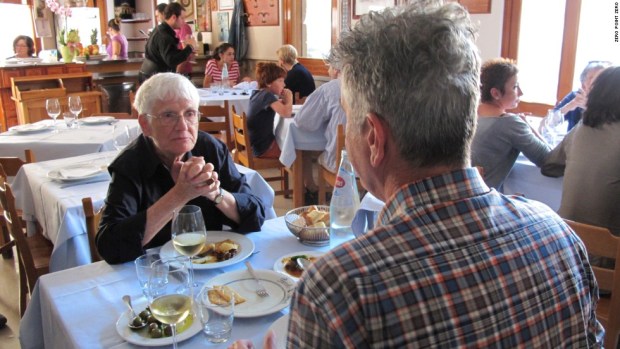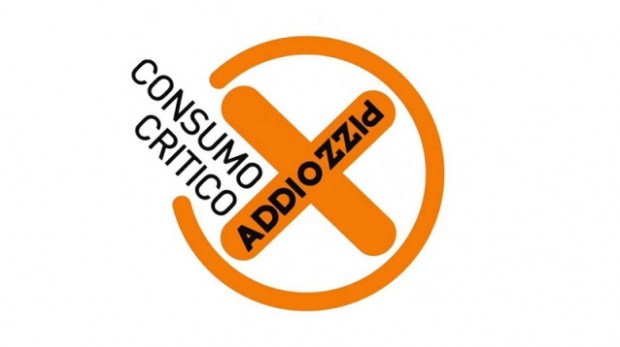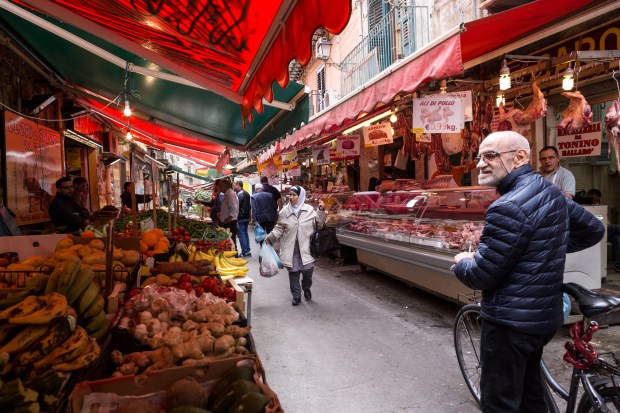Mary Taylor Simeti, a New York-born writer, activist, and farmer, moved to Sicily in 1962, after college. She met her husband and built a life on the Italian island, living through the tumult of an era defined by the Mafia and law enforcement’s attempts to combat it. She appeared on the Sicily episode of Parts Unknown in 2013, and she spoke with Anthony Bourdain about what it means to live in Sicily, where the Mafia continues to be a circumstance of daily life, and about the Addiopizzo movement—a coalition of businesses and individuals who refuse to pay bribes.
Aleesa Mann: What brought you to Sicily?
Mary Taylor Simeti: I was looking for a place in to have an experience in working in community development, but I didn’t have any specific training. The center where I came to work [the Center of Research and Initiatives for Full Employment] was still accepting volunteers who were not specialized. At work, I met my husband, and I decided to stay on.

Mann: Your husband and his family have a farm, Bosco Falconeria, west of Palermo. Can you tell me a little more about it?
Simeti: My husband’s grandfather bought it in the 1930s. It was originally just vineyards and an olive grove. We added on produce and about 30 years ago became one of the first farms in western Sicily to go organic. Now my daughter runs the farm. We make and sell olive oil, wine, and vinegar. And we have avocados, some citrus, some produce. The wine is available in the United States, and the oil and the wine are sold throughout Europe.
Aleesa Mann: What did you take away from the filming of the Sicily episode of Parts Unknown?
Mary Taylor Simeti: I was impressed by Anthony. Many of the chefs that I’ve met have major egos, and I thought he was really interested in what we were talking about and interested in listening to me, which was a surprise.
I’m glad that I had the possibility then to tell him about some of the things, the positive things that are happening here, in particular about the Addiopizzo organization. I think it’s important to give the rest of the world a new view of what it means to live in Sicily with the Mafia around you. If you’re not here, it’s very easy to see things in black and white. The people who stand up and refuse to pay extortion are heroes, but you can’t expect all the world to be a hero, especially when you’re sometimes putting your family or your life on the line for it. I don’t think it’s fair to be too critical of people who don’t have the strength or the confidence in the system to make a complaint to the police.
Mann: How did you become involved with Addiopizzo?
Simeti: We heard about Addiopizzo from a friend and a former student of my husband’s who was running a store for organic produce in Palermo. We thought it was a wonderful idea. For us, it was the obvious step to take, even though we have never been directly approached by the Mafia. I don’t think they think we’re worth it, frankly. We’re a small farm. We have a low profile. So far, we’ve escaped any attention, but we still felt that it was important to be there and to stand up and be counted.
Mann: What did you know about Addiopizzo before you joined the organization?
Simeti: We had read in the newspapers that they had put up notices all over Palermo, saying that a people that paid the pizzo [extortion fee] was a people without honor. That made it big. It was a big story, and everybody read about it and heard it about it, and we thought it was wonderful.

Mann: What is currently going on with the Addiopizzo movement?
Simeti: When I met with Bourdain in 2013, I said there were 800 stores or businesses who pledged to not to pay extortion money. Now there are over 1,000. Some smaller organizations have started recently in other cities in Sicily. Addiopizzo is working hard to make inroads outside the big city, but it’s clear that in a small community it’s much harder because everybody knows everybody.
One thing that’s very interesting, which is happening just now, is that a group of storekeepers from the immigrant community in Palermo went with Addiopizzo and made a collective complaint to the police about problems that they were having with the Mafia. They went to the police and made this collective complaint, and they’re testifying now at the trial. It’s the first time there’s ever been a collective complaint like this. And because it’s not Sicilians, it’s a foreign community that’s found the courage, I think the people at Addiopizzo hope that this is going turn out to be an example to Sicilians that you can survive saying no.
Mann: What does the future of the Addiopizzo movement look like?
Simeti: I think it will grow, and I think it will spread in Sicily. Sicily is much less provincial than it used to be. The problem in Sicily is that the economy is not growing. It suffered a great deal in the 2008 crisis and has not recovered from that, and if you don’t have jobs to offer people, you’ve got to expect that they’re going to get dishonest jobs. The worse the economy, the easier it is for the Mafia to recruit new members.
Mann: You’ve written books on Sicilian food. How would you describe Sicily’s food scene these days?
Simeti: There are some very sophisticated chefs who are doing a lot of reinterpretations. Some of it is very interesting, and some of it it’s rather pointless, as far as I can see. When you’re reinterpreting something that’s already very good, you have to make it better—you can’t just make it slightly different.
There’s also a lot of renewed interest in traditional Sicilian street food and increased awareness of the incredible heritage that Sicilians have. People are proud of it. They weren’t in the 1970s and the 1980s.

Mann: Do you mean people are more proud to be Sicilian?
Simeti: I think in the ’70s and the ’80s, Sicily was still very provincial. It was still very aware of the bad reputation—for the Mafia and poverty—it had in the world. A lot of people identified many of the real pillars of Sicilian cooking as “peasant food.” A man who lived down the road from me complained that his grandson wouldn’t eat fava beans because they were “peasant food.” People who were more socially mobile were trying to shake off the sometimes very painful memories of postwar poverty.
I’ve always felt that, partially, this movement of rediscovering pride in one’s tradition has a lot to do with the fact that in the 1980s a real anti-Mafia movement began. The big Maxi trial in ’87, in which [338] Mafia bosses were brought to trial and were convicted, was quite unusual. A number of people became aware they had to take a stand about things, and I think that was all part of a reawakening of pride in the good things about Sicily, such as the food.
Mann: You said there are some chefs that are doing reinterpretations of Sicilian food, who is your favorite?
Simeti: Pino Cuttaia. He has a restaurant called La Madia in Licata [on the south coast of Sicily], and he’s working very hard to re-create, with modern techniques, what he considers to be the essence of Sicilian traditional cooking—basically what his grandmother made. His parents were from Licata. He was brought up in the north but came for summer vacations to stay with his grandmother. He does a wonderful artichoke sous vide that has some charcoal in the packet with the artichoke. It really does taste like an artichoke that’s grilled on coals, but it’s not quite that—it’s much more sophisticated. I think the most interesting chefs are the ones who are turning the old dishes inside out. It has to be done with a real philosophy, and I think Pino Cuttaia has that.
Mann: Did you notice an uptick in interest in Sicily after the Parts Unknown episode?
Simeti: I’ve been amazed at how many people have seen it, how many people have come to Piccolo Napoli to eat after having seen it on the show. It was interesting as an example of the interest in Sicily that there is now that there wasn’t before. When I first met with an editor that seemed to be interested in publishing my first book, she said, “Well, you must have realized no one wants to read a book about Sicily.” That’s very different now.
This interview has been edited and condensed.